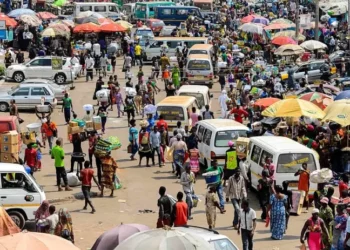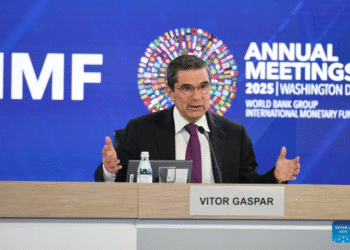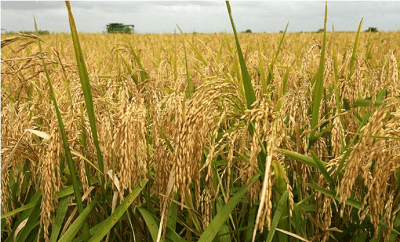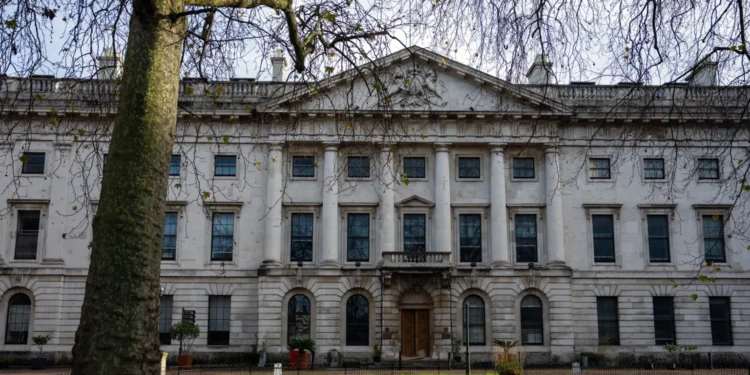In a sad development, the Ghanaian cedi has plunged to a new low- GH¢14 against the US dollar, intensifying concerns over the nation’s economic stability.
The rapid depreciation has sent shockwaves through the financial markets, triggering a state of panic among the public, investors and policymakers alike.
The relentless decline of the cedi has led to a year-to-date loss of approximately 12.08% against the American greenback.
By the close of market on 24th April, 2024, forex bureaus across the country are reported average selling rates of GH¢14 for the dollar, reflecting the heightened strain on the local currency.
Despite earlier predictions, most analysts had foreseen further depreciation of the cedi this week, citing persistent economic challenges and external factors.
Meanwhile, despite the gloomy outlook, Fitch Solutions offered a glimmer of hope by forecasting the cedi to conclude the year at GH¢12.25, suggesting a potential recovery in the coming months.
The London-based firm pointed to expected improvements in the government’s efforts to restructure commercial debt as a key driver for this anticipated turnaround.
Meanwhile, the strength of the US dollar on the global stage has compounded the challenges facing emerging market currencies, including the Ghana cedi. Rising US treasury yields, fueled by heightened inflation concerns, have bolstered the American dollar, exerting further pressure on currencies across Africa.
The latest data from the US revealed a 3.5% year-on-year increase in inflation for March 2024, driven by surging energy and housing costs. In response, the Federal Reserve signaled its commitment to maintaining higher interest rates to combat inflation, further boosting the US dollar index and treasury yields.
These developments have left many African currencies, including the Ghana cedi, vulnerable to external shocks and market volatility. As Ghana grapples with the implications of a depreciating currency, policymakers face the daunting task of implementing measures to stabilize the exchange rate and restore investor confidence.
Culmination of Various Internal and External Factors
The Cedi’s downward spiral reflects a culmination of various internal and external factors that have plagued Ghana’s economy in recent months. One prominent factor contributing to the currency’s decline is the widening trade deficit, exacerbated by soaring import costs and sluggish export performance.
Additionally, global economic uncertainties, including fluctuating oil prices and geopolitical tensions, have further undermined investor confidence in the cedi.
The repercussions of the cedi’s depreciation are far-reaching and profound. For consumers, the weakening currency translates into higher prices for imported goods, escalating inflationary pressures, and eroding purchasing power.
Businesses, especially those reliant on imported inputs, face mounting operational costs, squeezing profit margins and hindering investment and expansion efforts.
Moreover, the depreciating cedi poses formidable challenges for the Ghanaian government and monetary authorities. As they grapple to stabilize the currency and restore market confidence, they are confronted with the daunting task of implementing effective monetary policies and fiscal measures.
However, finding a balance between stimulating economic growth and containing inflation remains a formidable challenge amidst the prevailing economic turmoil.
The cedi’s plight also transcend across the broader African continent, underscoring the vulnerability of emerging market currencies to external shocks and internal vulnerabilities.
As one of West Africa’s largest economies, Ghana’s currency woes serve as a cautionary tale for neighboring nations, highlighting the imperative of proactive economic management and structural reforms to fortify resilience against external headwinds.
In response to the escalating crisis, stakeholders across the spectrum must rally together to devise holistic strategies aimed at mitigating the cedi’s decline and fostering sustainable economic development.
This necessitates concerted efforts to bolster export competitiveness, enhance productivity, attract foreign direct investment, and strengthen macroeconomic fundamentals.
Furthermore, enhancing transparency and accountability in governance, curbing corruption, and promoting inclusive growth are pivotal in fostering long-term economic stability and resilience.
As Ghana navigates through these turbulent waters, it is imperative for leaders to demonstrate unwavering commitment and resolve in steering the nation towards a path of prosperity and resilience.
While the road ahead may be fraught with challenges, it also presents an opportunity for Ghana to harness its inherent potential and emerge stronger. Concerted efforts and strategic interventions can pave the way for a more resilient and prosperous future for Ghana’s economy.
READ ALSO: Professor Naana Jane Outlines NDC’s Vision for a Transformed Ghana






















